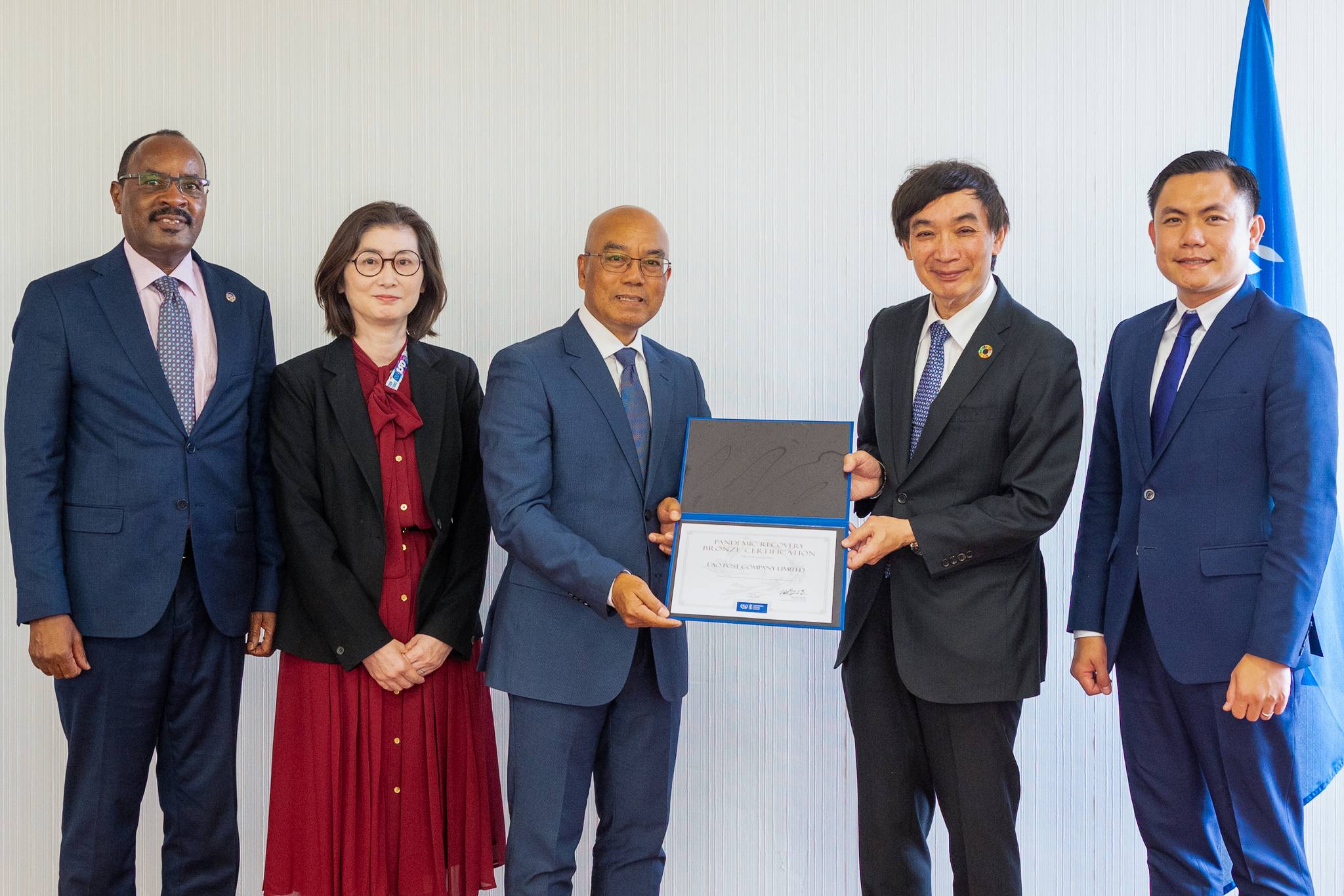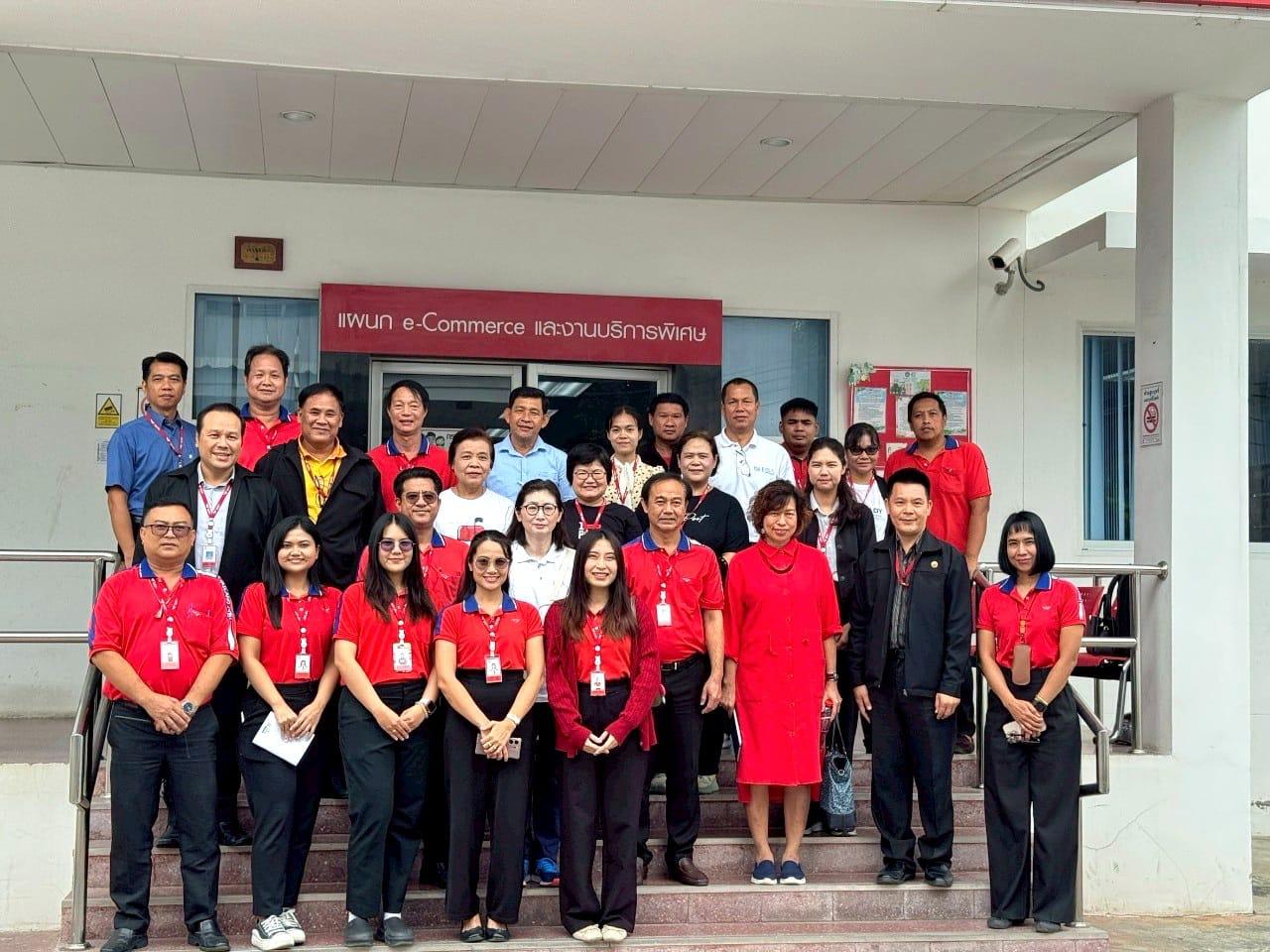Disaster preparedness certification for member countries and designated operators
Background and concept
The 26th UPU Congress, held in Istanbul in 2016, endorsed Japan’s proposal to continue disaster risk management efforts in the postal sector, especially for developing and least developed countries.
Congress resolution C 14/2016 included a recommendation for the relevant bodies of the UPU to “study the possibility of a specific certification process which would allow postal operators to improve their disaster risk management approaches and benchmark their level of implementation in the framework of the UPU disaster risk management guide”.
The UPU’s guide to disaster risk management for the postal sector provides an appropriate, uniform starting point for developing a disaster risk management certification process for postal operators.

Disaster risk management certification will:
- provide a standardized disaster risk management framework for the postal sector;
- support postal operators in their efforts to ensure the resilience of their operations by providing a step-by-step methodology adapted to their unique geographical conditions and challenges;
- stimulate continuous improvement in the area of disaster preparedness and risk management;
- provide postal operators with recognition for their work in the area of disaster risk management and enhance their national and international reputation as disaster risk management stakeholders; and
- help postal operators to build a trustworthy brand.
Aims of certification
The overarching objective of certification will be to assist postal operators in maintaining business continuity and ensuring national and international quality of service in the aftermath of a natural disaster. This is particularly important in remote areas, where the Post is often the first government agency to resume service after a disaster and can play an essential role in helping the community and public services to return to normal.
A standardized framework for disaster readiness will enable postal organizations to develop or enhance their preparedness for disasters, consistent with relevant UPU security and operational standards.
Methodology
The disaster risk management certification process will reflect the scope of the disaster risk management guide (i.e. natural disasters) to leverage existing resources, facilitate future coordination and create synergies with related activities. It will dovetail with the development cooperation activities of the UPU International Bureau and will be aligned with existing UPU certification processes.
Disaster risk management certification covers the five phases of disaster management – prevention, preparedness, response, recovery and mitigation – and includes an initial vulnerability and risk assessment.
The disaster risk management certification process includes:
- a simple, straightforward methodology;
- a tiered approach, allowing postal operators to progress in their work on disaster risk management according to their conditions and capabilities;
- alignment with existing UPU certification processes; and
- the incorporation and enhancement of existing UPU disaster risk management resources.
Certification procedure
DOs will be able to apply for certification on an ongoing basis by submitting the documentation below.
Before the certification process, applicants must demonstrate a commitment to disaster readiness. They must also identify the person(s) responsible for DRM within the organization and the technical expert(s) who will attend training sessions and participate in the implementation phase.
Best practices
Thailand Post Earns Prestigious Golden Certificate for Excellence in Disaster Risk Management and Pandemic Recovery

Thailand Post has demonstrated outstanding resilience by successfully achieving the Universal Postal Union (UPU) certification in Disaster Risk Management and Pandemic Recovery. This comprehensive certification process, conducted from June 10 to 12, highlights Thailand Post’s unwavering commitment to business continuity, as well as the protection of its workforce and critical infrastructure against emergencies and pandemics.
The rigorous assessment was led by Ms. Fumiko Nohara, Senior Expert for Emergencies and Postal Resilience at the UPU International Bureau, alongside regional specialists from Lao Post and Cambodia Post. This collaborative evaluation reinforced regional cooperation and knowledge-sharing.
The certification process involved thorough on-site evaluations at Thailand Post’s key facilities, including their Bangkok headquarters, Chonburi Post Office, and Si Racha Mail Center. Achieving the golden certificate underscores Thailand Post’s implementation of best practices in disaster preparedness and pandemic response, ensuring minimal disruption to services and enhanced safety for employees and assets.
Application form
-
05.06.2024
-
05.06.2024
Pandemic Recovery
-
05.06.2024
-
05.06.2024
Certification Levels
Three levels of DRM certification will be offered: Bronze, Silver and Gold. DOs will be encouraged to progress from one level to the next, thus building their DRM capacity. Member countries’ socio-economic and postal development will be considered when defining these levels so as to ensure an appropriate threshold for participation.
Once issued by the IB, certification will be valid for three years, after which the DO can apply for re-certification.